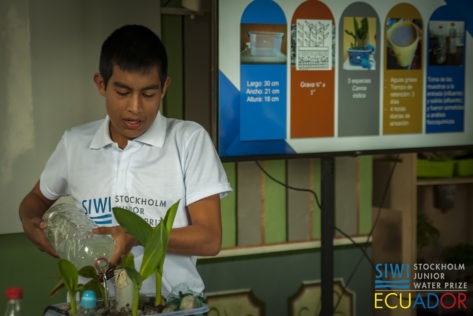
Wastewater generation is a current environmental and public-health problem. In this project, the influence of the species Canna indica and Racinaea fraseri on the removal of contaminants present in domestic wastewater was studied, through artificial wetlands, using concrete filtering media. The methodology was based on an experimental model of a hybrid continuous system wetland, fed with wastewater with 2 individuals of Canna indica and two of Racinaea fraseri. The system was monitored using physical-chemical parameters: pH, chemical oxygen demand, phosphates, ammoniacal nitrogen, nitrates, and total suspended solids. Simultaneously, the apical growth of the plant was monitored. The results demonstrated that plants capture nutrients from the water, therefore contributing to the elimination of contaminants (especially nutrients) in the wetland.
This is how I came up with the idea for this project:My inspiration to develop this project was born in the Yahuarcocha lagoon, located in the same province of Imbabura, since it is in an environmental emergency due to the wastewater problematic. Therefore, the search for suitable and adaptable alternatives for rural areas is a priority.

